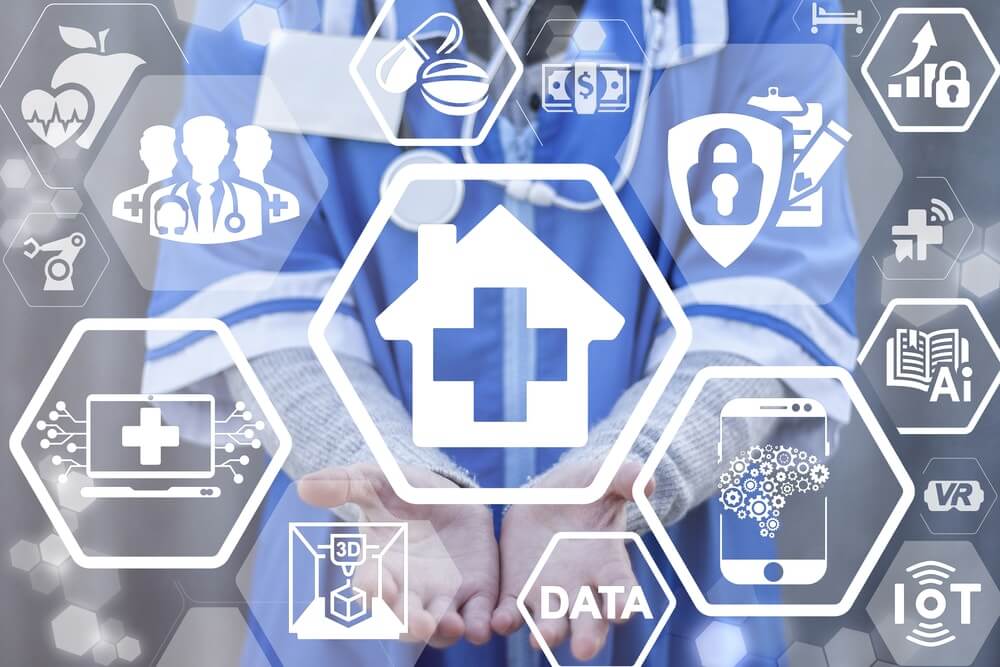12 Reasons Why Automated Care Is Helpful in the Healthcare Industry
The use of artificial intelligence in healthcare has been in the headlines for some time now. But, it doesn't have to be about medical robots every time - there's more to it!
A perfect example is health care automation. Automation in healthcare involves the use of different software that promotes efficiency in the provision of medical services.
This technology employs modern techniques and tools for efficiency reasons. They help monitor safety, security, and the health status of your loved one from home.
With that in mind, we will share the twelve reasons healthcare automation is helpful for both healthcare service providers and patients.
How Does Automation Help Healthcare Services?
The advent of modern tools and technologies is something to marvel at. These tools are now being used to advance high-performance computing and the handling of volumes of data. Technology also has a notable impact on most operational and administrative areas. These are;
1. Faster Data Retrieval
Data generation is a critical aspect of health care. EHR machines are now being improved to generate data in real-time. This will ease the data extraction process and improve patient care. Besides, health practitioners will easily access the required information when needed.
2. Improved Ordering
The ordering process is challenging and time-consuming. With an HER machine, it takes multiple clicks to complete a single order. However, predictive AI technologies can significantly promote efficiency in the ordering process.
3. Quicker Billing
The use of AI in revenue applications can help regenerate bills quicker. Additionally, this saves time when presenting bills to patients, hence improved customer satisfaction.
How Does Healthcare Automation Help Patients?
We all prefer using the most advanced systems in health care. We all want improved efficiency and consistency. Well, that's what automation does. What's more? It's reshaping health care processes and paving the way for more advancements. Check out how health care automation benefits patients.
1. Early Disease Detection
Early detection profits patients in various ways. It allows for early treatment, which hinders disease progression. With technological advances like AI in healthcare, it's easier to determine if a patient has a particular disease. In most cases, this happens before the appearance of the symptoms.
For instance, the neural network can detect lung cancer in the early stages. And this is faster than trained radiologists. With all the benefits of AI in healthcare, you can sit back, enjoy better health, and involve your loved ones in writing a life story. How is this possible? You can take advantage of your health to build a life biography. Include images, videos, music, text, and any other detail that will inspire your grandchildren.
2. Speed & Precision in Medical Diagnostics
Time is very critical in diagnosis, especially ones with serious illnesses. Delayed diagnosis puts the patient at a higher risk of getting worse or succumbing to the disease. By trying to expedite the process, health workers can easily make blunders resulting in inaccurate results. However, the automated diagnostic process delivers speedy and more precise results.
What's more? Automation helps detect patient deviation from the recommended care plan, making it easier for physicians to intervene in real-time. With automated dispensing machines in hospitals, you evade long queues and get the right drugs with no time. Undoubtedly, getting rid of conventional and ineffective processes enhances productivity and improves the quality of care.
3. Provision of Quality Care
Automation empowers health providers to offer better services. These include; increased efficiency, better patient management, and retrieval of patients' data. Patient information is always available when needed, and this simplifies care processes. These include; patient indexing, data entry, and medical history. Automation in healthcare also allows health providers to monitor patients closely, remind patients on follow-up appointments, and faster billing.
4. Improved Patient Participation & Management
Nowadays, most patients use mobile apps for increased engagement. Service mobile apps ease the management of patient care. They make it easier to book appointments, check patient history, and pay hospital bills. Mobile apps also aid patients in seeking health advice and staying in touch with doctors.
5. Minimal Errors
Simple mistakes in health care provision can be costly. Physicians are bound to commit mistakes due to fatigue and inattentiveness. However, this isn't the case with automated machines. Health care providers can use electronic systems to offer timely and efficient services. A computerized platform is more streamlined and leaves no room for blunders.
6. Safer Treatment Solutions
With a more accurate diagnosis, there's a lower risk of complications resulting from patients receiving the wrong treatment. Doctors are sure of their recommendations, and patients get the most appropriate treatment. There's also the minimal likelihood of medical malpractice from an improper diagnosis. With automation, medical malpractice lawsuits reduce, which saves the patient a lot of time and money.
7. Enhanced Communication
Automation in healthcare enhances communication between patients and health providers. For instance, most patients forget appointment dates and end up missing their appointments. However, with an appointment reminder, the number of patients missing appointments is reduced.
Timely patient notifications encourage direct feedback. Patients can notify the health facility if they don't make it to attend as scheduled. This way, it's easier to track patient appointment cancellations and confirmations, which reduces hospital wait time. It also enables patients to get care at the right time, which lessens health complications.
8. Superior & Long-Lasting Equipment
Manual diagnostic machines are prone to damages, and this can be inconveniencing. Lab technicians can also drop and break delicate tools like pipettes and test tubes. Worse still, they can sometimes contaminate patient samples.
Automated processes are less likely to deviate from the task, and the equipment will rarely breakdown. What are the gains? This saves patients a lot of time that would instead be used to visit the hospital to get test results.
9. Affordability of Services
It's easier and less costly to treat illnesses before they cause severe damage to a patient's body. As mentioned earlier, automation supports faster and more accurate diagnostics. Also, health workers can easily prescribe the right medications to prevent infections from worsening. And this enables a patient to treat conditions before they worsen, which is less costly.
Healthcare Automation Is The Future
With more and more people seeking healthcare services, workers may not meet the increasing demand for services. With health automation, doctors have additional time for patients.
Moreover, it improves service delivery hence the provision of better and timely services. Automation in healthcare comes with numerous gains, and patients stand to benefit more.
To get started on implementing healthcare automation, you need to first think about patient engagement. Our E-Book, The Importance of Patient Engagement & Why You Need It, is a great place to start.
About Tom Peterson
My name is Tom and I currently reside in the United Kingdom. My greatest assets are my words and I enjoy using them to make the lives of others easier. I have been writing professionally for about three years and they have been the most beautiful years of my life. Second to writing, hot chocolate is my greatest addiction.



